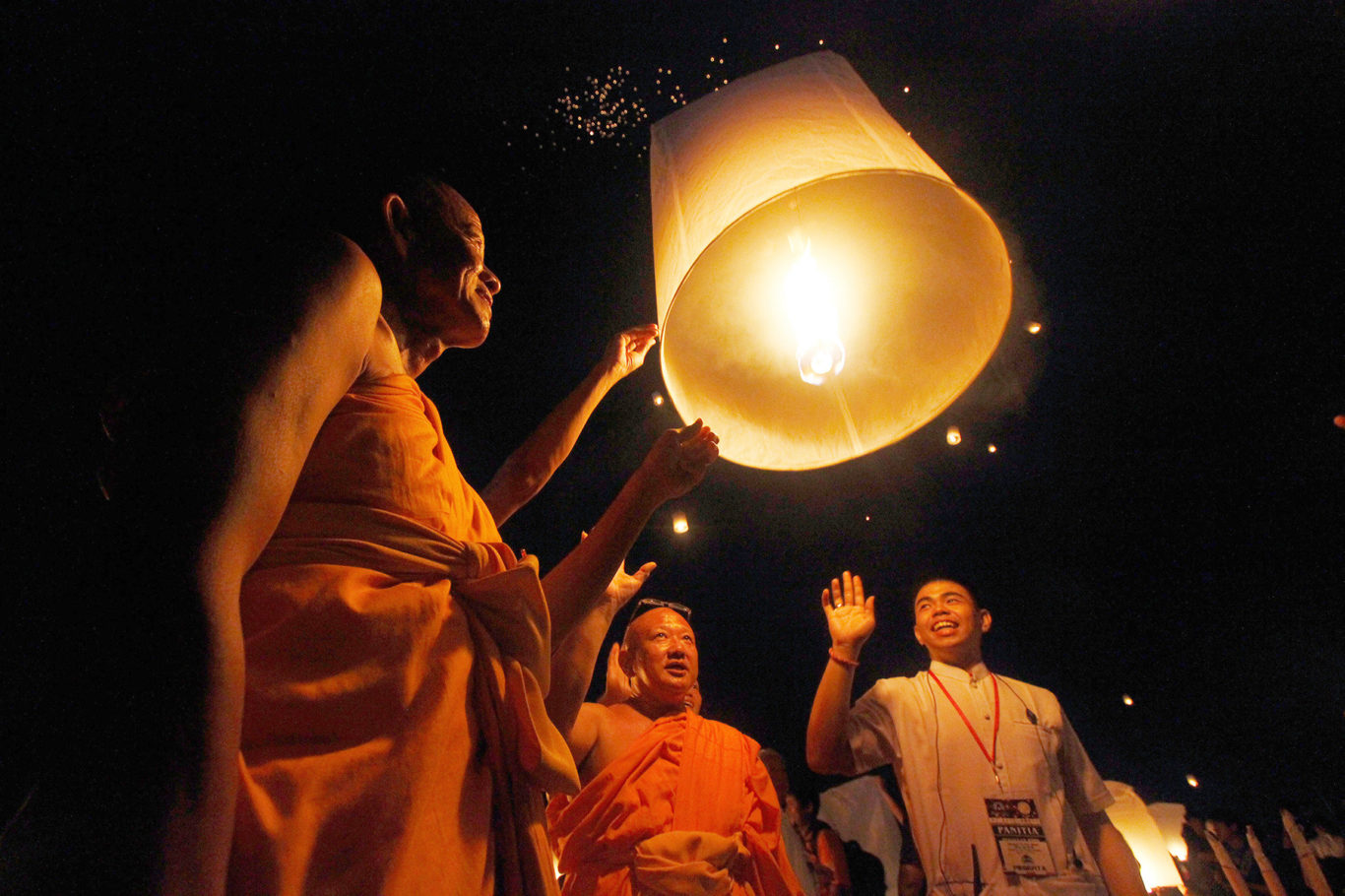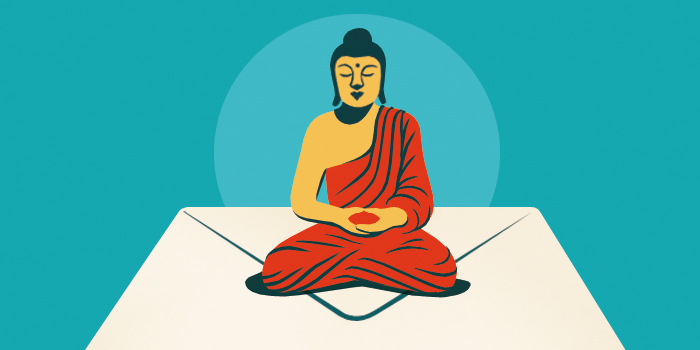Vesak

Theravada Buddhists observe Vesak by releasing lanterns into the sky at Borobudur, one of the largest Buddhist monuments, located in Indonesia. | Pacific Press Media Production Corp. / Alamy Stock Photo
For much of the Buddhist world, Vesak, also called Buddha Day, Visakha Puja, or Wesak, is the most important day of the year. In Theravada and Tibetan Buddhism, Vesak commemorates the Buddha’s birth, death, and enlightenment. In East Asian Buddhist schools, these are usually separate holidays, called Bodhi Day and Parinirvana Day, respectively.
The name Vesak is derived from the name of the fourth month in the Indian calendar, today called Vaisakha. The holiday falls on a full moon and can take place anytime from late April through early June on the Gregorian calendar, with Buddhist countries celebrating on different days.
While Vesak celebrations have ancient origins, the focus shifted in the late 19th century from celebrating regionally popular deities and bodhisattvas to celebrating Shakyamuni (“Sage of the Shakyas”), the historical Buddha. At the time, Buddhism was practiced in many disparate forms. A Nichiren practitioner in Japan, for instance, may not have considered herself to be part of the same religion as devotees in Sri Lanka or Tibet. Under European colonial rule in Asia, Vesak was an attempt to bring the traditions together under one holiday that could stand alongside Christian celebrations.
Vesak is a national holiday in India, where it is known as Buddha Purnima (“full moon celebration”) or Buddha Jayanti due to the advocacy of Buddhist reformer B.R. Ambedkar. The Buddha is recognized as a figure of national and historical importance in India, and many Hindus commonly view the Buddha as an avatar of the god Vishnu. By the 1950s, many Asian countries celebrated International Vesak Day, and in 1999 the United Nations recognized it as an international holiday.
Vesak is particularly important in Southeast Asia. Thai teacher Ajaan Lee Dhammadharo said in 1956, “Every year when this important day comes around again, we Buddhists take the opportunity to pay homage to the Buddha as a way of expressing our gratitude for his goodness. We sacrifice our daily affairs to make merit in a skillful way by doing such things as practicing generosity, observing the precepts, and listening to the dhamma.”
During Vesak celebrations, devotees may abstain from eating meat or drinking alcohol, clean their homes, give alms to the poor and monastics, and pay extra care to committing good deeds and earning merit.

Tricycle is more than a magazine
Gain access to the best in sprititual film, our growing collection of e-books, and monthly talks, plus our 25-year archive
Subscribe now